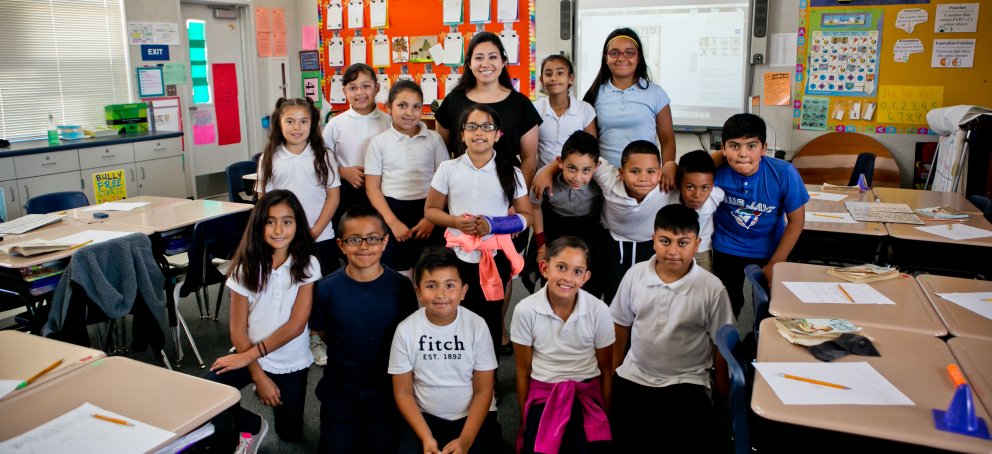Teacher Programs

Reading Recovery Teacher Program
Reading Recovery Teachers train with a Teacher Leader while working individually each day with four students at a school site. Two years of prior experience teaching in an elementary classroom is required. Enrollment is determined by an application and interview process in the local school district. Applicants must be employed and sponsored by a school district. Classes held off campus
Literacy Lessons Teacher Program
Literacy Lessons Teachers train with a Teacher Leader and work individually with students in Special Education and English Language Learner programs. Literacy Lessons is based on the same theoretical work as Reading Recovery, but expands services to a wider range of students. It is designed to help readers and writers develop early literacy processing systems. Classes held off campus. Learn more in our Literacy Lessons brochure.
Descubriendo la Lectura Teacher Program
Descubriendo la Lectura (DLL) is designed to bridge fluent Spanish-speaking Reading Recovery teachers trained in Reading Recovery in English to DLL. The purpose of DLL is to prepare Spanish-speaking teachers to offer early intervention in reading and writing to Spanish-speaking children who are receiving their primary literacy instruction in Spanish [will learn to read in Spanish]. Classes held off campus.
Early Literacy Teacher Program
Early Literacy Teacher Program is for classroom teachers to train alongside Reading Recovery and Literacy Lessons teachers in literacy processing theory. The classroom teacher teaches only one student per round (minimum of two per year). In the training year, the teacher teaches first grade children, but then can teach children from his/her own grade level after that (K-2). Should the teacher wish to become a Reading Recovery teacher and be reassigned to that position in a subsequent year, she receives additional support from the Teacher Leader, continues to attend OPD, and works with a full load (minimum of 8 children).
Strategic Intervention Model Teacher Program
The SPI Program considers the wide range of learners needing support and teachers will be helped to define their problem of practice. Many of the TLs have requested support for RR students who are "referred" but have no real program to train teachers to serve these students other than buying one from a publisher. We know sustainability of the learning in RR may depend on types of small group and one on one services provided for recommended students. It might be CIM groups but it might be other options to provide PD for teachers to support students recommended for services; it might help define those services including special education and dyslexia.
SPI coursework brings together reading specialists, specifically RR TLs, and intervention teachers, specifically CIM Coaches. Many folks have training in both programs; our goal is to look at the range of assessments that inform program planning and how to use those data. It will include special education assessments along with reading measures, and knowledge of and experience with the Observation Survey.
CIM/CLM Teacher Program
Partnerships in Comprehensive Literacy (PCL) is a systemic school transformational model dedicated to increasing student achievement. In the past decade, this model has proven to be one of the most effectiveapproaches to improved literacy achievement, through high qualityprofessional development, research-based instructional practices, and acomprehensive assessment system. The model transforms instruction in the classroom and in interventions, through collaborative learning teams, led by Comprehensive Literacy Model (CLM) and Comprehensive Intervention Model (CIM) coaches.
HEROES Grant Teacher Application documents, please click below.
For more information or to apply please contact:
Annie Browne, ahb7@stmarys-ca.edu